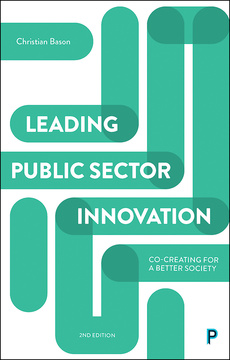Understanding and Improving Public Management Reforms
By Thomas Elston
Published
Apr 30, 2024Page count
172 pagesISBN
978-1447360889Dimensions
203 x 127 mmImprint
Policy PressPublished
Apr 30, 2024Page count
172 pagesISBN
978-1447360896Dimensions
203 x 127 mmImprint
Policy PressPublished
Apr 30, 2024Page count
172 pagesISBN
978-1447360896Dimensions
203 x 127 mmImprint
Policy PressWhy do top-down reforms to public services so often over-promise and under-deliver?
Using five concepts from psychology, economics and organisational sociology, Thomas Elston addresses this pressing question of good governance.
Rather than focusing on the challenge of implementation, Understanding and Improving Public Management Reforms reveals how flawed policy design is often the major contributor to reform failure. Cognitive bias, restrictive social institutions and inattention to ‘quiet costs’ during the policy-making process are essential to explaining the poor track record of reforms to date – and point the way towards better decision-making in future.
Written for policy professionals, service managers, students and researchers alike, this concise, practical and multidisciplinary study draws on varied examples to help reconceive the perennial problem of public management reform – and to propose new solutions.
“Can government reform itself to deliver better public service? Thomas Elston adroitly addresses this question with a rich and engaging set of concepts and practical examples. Anyone seeking to make the public sector more effective would profit by reading this book.” Donald Moynihan, Georgetown University
"This book offers a fresh and important take on public management reform. Everyone who is interested in better government should read it." Christopher Hood, University of Oxford
Thomas Elston is Associate Professor of Public Administration in the Blavatnik School of Government at the University of Oxford.
Introduction
1. Public Management and Its Reform
2. Intuition, Bias, and Reform
3. Efficiency, Legitimacy, and Reform
4. Quiet Costs of Reform
5. Onward, Inter-disciplinary Reform













